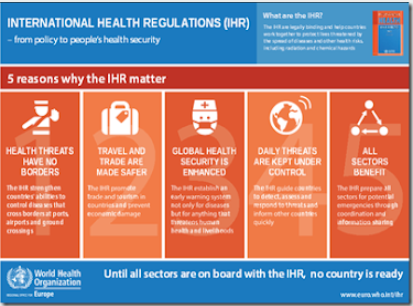
#18,355
Yesterday Vanity Fair Magazine published a scathing review (and rebuke) of the United State's response to H5N1 in livestock by Katherine Eban (Inside the Bungled Bird Flu Response, Where Profits Collide With Public Health), which I suspect will be marked as `Exhibit A' in some future congressional subcommittee hearing.Readers of this blog, and other members of Flublogia (FluTrackers, CIDRAP, Hogvet51, etc.) are already well aware of this dysfunctional response, and the fact that it is nothing new.
Fifteen years ago, in Swine Flu: Don’t Test, Don’t Tell, we looked at the reluctance of the swine industry to test pigs for novel flu viruses - fearing that bad publicity would cost them money - and the USDA's refusal to mandate testing.
This was essentially the same rational used by Indonesian Health Minister Supari in 2008 when she refused to report H5N1 infections, or share virus samples, with the WHO and CDC (see Despite Progress Indonesia Still Unwilling to Share Virus Samples).
In 2005, the 194 member states of the World Health Organization (WHO) - following the reporting debacle surrounding SARS in 2002-2003 (see SARS and Remembrance) - approved the biggest change to the IHR (International Health Regulations) since 1969.
IHR 2005 required that all member nations develop mandated surveillance and testing systems and to report certain disease outbreaks and public health events to WHO in a timely manner (usually within 48 hours).
While supposedly binding for all WHO member nations, the IHR is notoriously lacking in `teeth’. Nations agree to abide, but there is little recourse if they don’t follow through - a topic we looked at in depth in 2015 in Adding Accountability To The IHR.
Since then we've seen dozens of attempts to minimize or cover up disease outbreaks for economic or political reasons around the globe, including:
- Egypt minimized the number of H5N1 cases in their record setting outbreak in 2015 (see EID Journal: H5N1 In Egypt),
- Saudi Arabia (and neighboring countries) have been slow to report MERS-CoV cases, and China has a long history of covering up outbreaks.
- In 2023, two prestigious journals published estimates of COVID deaths in China over a 2 month period (see EID Journal: Estimate of COVID-19 Deaths, China, December 2022–February 2023 and JAMA Open: Excess All-Cause Mortality in China After Ending the Zero COVID Policy) which found more than 1 million deaths went unreported.
- Following China's `success' in managing outbreak information - and in order to `move on' from the pandemic - 90% of the world's nations (including the United States) gutted their COVID surveillance and reporting systems, and simply stopped counting COVID hospitalizations and deaths (see No News Is . . . Now Commonplace).
Just like somewhere, someone decided it was best not to aggressively test for H5N1 in cattle, in the hopes that it would `burn itself out' and they wouldn't have to deal with it.
Despite this - and equally concerning outbreaks in poultry (and spillover into humans) - our national response to H5N1 remains fragmented, and appears predicated more on protecting agricultural interests and the local economy, than on public health.
While governments have always `sanitized bad news for our (or their) protection', in recent years it has become increasingly blatant, with almost no attempt to disguise the fact.
While ignorance may be bliss, the next pandemic threat may be much closer than we think. We simply can't know what threats lie ahead if we don't proactively look for, and report, outbreaks.Obfuscation has become the norm, and is done with impunity. We hear almost nothing about H5N1 - or any other disease outbreaks - from China or Russia, and near radio silence from the Middle East.
